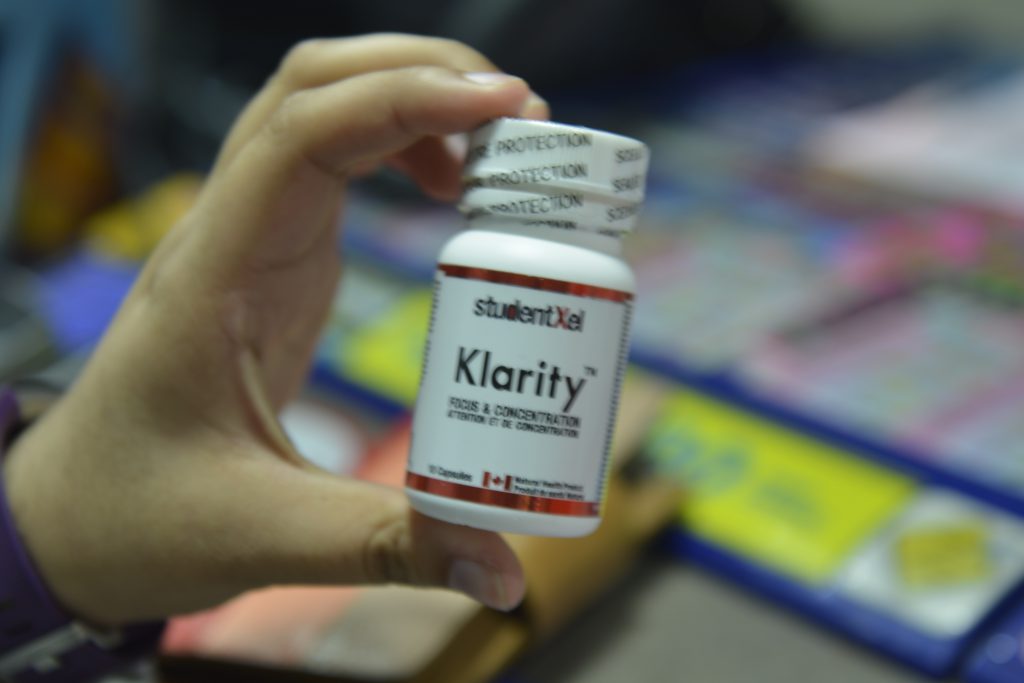
Do you ever find yourself struggling to find the motivation or mental energy to sit down and study? For university students this is all too common, and many of us turn to pharmaceuticals — especially ADHD medication like Adderall and Ritalin — whether or not we actually need them. But can so-called “study drugs” really help you get your grades up?
Ask the expert
Dr. Bruce McKay, a neuroscientist at Wilfrid Laurier University, noted an all-too-real and somewhat comical scenario that users of ADHD medication may encounter.
“I’m sure you have heard stories about — students tell me these stories — where they decided to take some Ritalin to study for a test, and then they took a break for a little bit, or even [that] someone told them to take half an hour to forty five minutes for the effects to kick in — so don’t start studying until that,” McKay said. “So they decide to do something else before that, they will start tidying up their room or something like that, and the next thing you know eight hours have gone by, and the apartment is cleaned top to bottom — absolutely flawless. Mom would be thrilled, but no studying has gotten done.”
If beautifully completed but totally irrelevant tasks were the only issue, then pharmaceutical drug use might not be such a problem. Unfortunately, according to McKay, the drug may not be very effective for users without attention deficits.
He claimed that the primary benefit of these ADHD medications for non-prescription is as a “stay-awake aid” with slight benefits to attention. Being that these drugs are stimulants, they can keep those who use them from getting the sort of exhaustion usually associated with long work or study sessions.
McKay pointed out that since different people have different neurological chemistries, when you interview a large group of people about these substances, you will get a wide range of differing experiences.
Student experiences
One University of Waterloo software engineering student stated that he not only found Adderall to be useful during times of overwhelming amounts of work, but that he even took up to 100 mg of the substance at once in the past. This is a rather large dose, and he does not recall many negative side effects at all. This student did not have a prescription.
On the other hand, a Laurier student who does have a prescription reported discontinuing use after she suffered from an unhealthy lack of appetite resulting in unhealthy weight loss.
Another UW student with a prescription for Adderall noted that the primary benefit of using Adderall was the energy it provided, and not motivation to actually do the work. He also mentioned having discontinued use after his body was responding negatively after coming down from the drug, as well as having a negative effect on his sleep cycle.
A geomatics student at UW indicated that his experience had also been primarily positive. His experience had been with Concerta, and some Adderall. He noted that on Adderall, at the dose that he took, he had roughly a twenty-minute period of “jitters.” He also noted some discomfort in his stomach. With the wide variety of both doses and individual – dependent effects, one begins to question the use of these drugs, especially without a prescription, with the illicit nature of the activity and the increased likelihood that one may take an unsuitable dosage.
Giving a little Klarity
Laurier student and entrepreneur Andrew Stubbs has become concerned with the issue of pharmaceutical drug use on campus, and decided to make a business out of those concerns. His company is called studentXel and currently produces one product, called Klarity. Klarity is a pill that combines caffeine, L-Tyrosine, L-Theanine, niacin, and vitamin b12. More information on the formula can be found on studentXel’s website. The product is sold at the International News at Laurier and UW, as well as online and in select stores.
When asked about his motivation for creating Klarity, Stubbs, having witnessed the use of ADHD medication by students, said, “I guess I just want students to have an alternative to the assumed status quo of doing well in school. I want a mainstream way for students to pragmatically, sort of, take something to help them, but know that there are not going to be long term adverse health effects.” Throughout the interview, they also spoke about the desired effect of the product, that is, the delivering of a stimulated and alert experience that is also calming and avoids jitters. Having spoken to McKay about Klarity, the effects of this product may not necessarily be reflective of mine for everyone.
McKay, however, voiced concern for Klarity and other natural product alternatives.
“There are always concerns when you put these things together in novel ways that you have emergent effects from the combination,” McKay said.
In other words, even natural ingredients can interact with each other in unexpected ways. McKay compared Klarity to energy drinks, pointing out that Red Bull works not only due to the effect of caffeine, but also through other components that caffeine interacts with. Compared to study drugs, however, natural products like Klarity could serve as a healthier alternative for students.






























